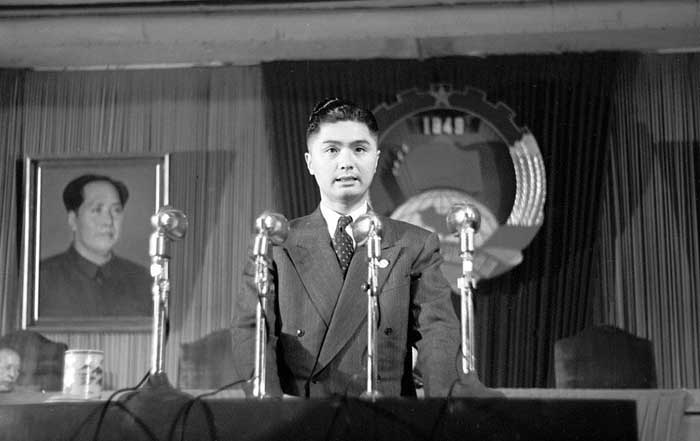Profile of Rong Yiren, economic visionary
Rony Yiren, nicknamed the ‘Red Capitalist', was one of the key players in the inexorable shift of the Chinese economy from an inwardly-focussed ‘sleeping giant' into one of the world's leading trading superpower s. As the nation's Vice President of China for much of the 1990s, he oversaw a crucial transition period for China.
Born in 1916 in Wuxi, near Shanghai, both his father and uncle were founders of a successful cotton mill. He was educated at St John's University, a Christian institute that was widely regarded as one of China's finest and most prestigious colleges. He was still in his 20s when he was given full responsibility for the running of all the 24 mills of the family business.
There followed a tumultuous period for China, as the old shackles were thrown off and Civil War between rival political factions, Communist and Nationalist, engulfed the country. Unlike most of the business community who decided to either take exile alongside the fleeing Nationalist government in Taiwan, or seek refuge in the British protectorate of Hong Kong, Rong's family remained loyal to China. They maintained their private business until 1956, when commercial enterprises were nationalised. His family received a compensation fee of around $6 million. A year later Rong was appointed vice-mayor of Shanghai, before being promoted to the position of economic advisor for the Communist Party.
There followed a difficult period, with radical youth groups such as the Red Guards denouncing everyone they suspected of harbouring loyalties to the old Nationalist regime. Rong was condemned as being one of these capitalist sympathisers, losing much of his personal wealth and even receiving death threats. He was demoted to the status of a janitor for a while. However, he received protection from Zhou Enlai, the First Premier of the People's Republic, and was shielded from further mistreatment.
Upon the death of Mao Zedong and the conclusion of the so-called Cultural Revolution, Rong became an advisor during the period of China's economic opening, instigated by Deng Xiaoping, the reformist leader of the Communist Party. In the late 1970s China truly began to explore new and radical ways of socialist thinking. The new revolutionary aim was to combine the historic aspirations of catering to the needs of all the people with the potential for development offered by entering the free market. From this moment, China was open for business for Western enterprises who were hungry for investment opportunities.
Rong risked further political ostracising in 1989 when he suggested the Party leadership negotiate with the disaffected students staging demonstration in Beijing's Tiananmen Square. In the end, the crisis passed and he was appointed to the ceremonial post of China's Vice President in 1993. Five years later, Rong retired, leaving a hugely influential legacy for his nation. Unfortunately the great economic visionary died in October 2005.
As well as his political nous in assisting with China's economic modernisation, his impact on its business world was immense. He was listed as one of the richest men in Asia and his family fortune is estimated at around $1.9 billion.

